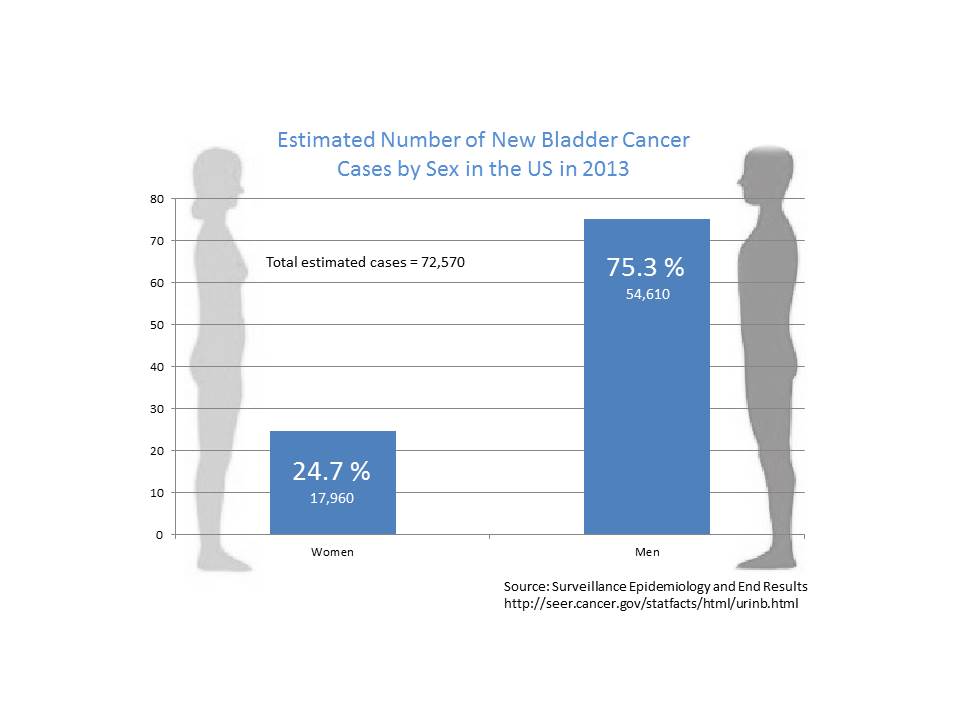What causes the 4th most commonly diagnosed cancer in men in the United States? The jury is still out on the exact causes of bladder cancer, but researchers have discovered some important risk factors. Remember that having a risk factor, or even several, does not mean that you will get bladder cancer. Let’s explore the most common and significant risk factors of the disease:
- Smoking tobacco is without question the most important risk factor for bladder cancer. People who smoke are at least 3 times more likely to get bladder cancer than people who don’t. We also know that smoking accounts for 50% of all bladder cancer cases. Why does smoking cause this elevated risk? Carcinogens inhaled from smoke pass from the lungs into the blood, are filtered out by the kidneys and become concentrated in the urine. The harmful chemicals can then damage bladder cells, leading to an increased chance of developing cancer. The good news is that quitting smoking is associated with a reduced risk.
- Workplace exposures, such as exposure to certain industrial chemicals, have been associated with bladder cancer. Aromatic amines, a type of chemical used in the dye industry, are known to cause the disease. Workers in other industries are also at an increased risk. Some examples include firefighters, painters who are exposed to paint fumes, truck drivers exposed to diesel fumes and hairdressers exposed to hair dye.
- Gender is also an important risk factor for bladder cancer. Men are about 4 times more likely to be diagnosed with bladder cancer, with a 1 in 26 chance of developing it during their lifetime. Researchers are not exactly sure what accounts for this discrepancy in risk between men and women, but some possible reasons include differences in smoking rates and occupational exposures, as well as physiological differences.
- As age increases, so does your risk for bladder cancer. The majority of cases are diagnosed in people over the age of 55.
- Radiation therapy and certain chemotherapy drugs have been shown to increase the risk of bladder cancer. People treated with radiation to the pelvic region, such as that used for the treatment of prostate cancer, are more likely to develop bladder cancer.
For more information about bladder cancer please visit www.bcan.org. The Bladder Cancer Advocacy Network (BCAN) is a nonprofit organization whose mission is to increase public awareness about bladder cancer, advance bladder cancer research, and provide educational and support services for the bladder cancer community.
Sources:
https://www.bcan.org/
https://www.cancer.org/cancer/bladdercancer/detailedguide/bladder-cancer-risk-factors
https://www.nih.gov/researchmatters/august2011/08292011cancer.htm



